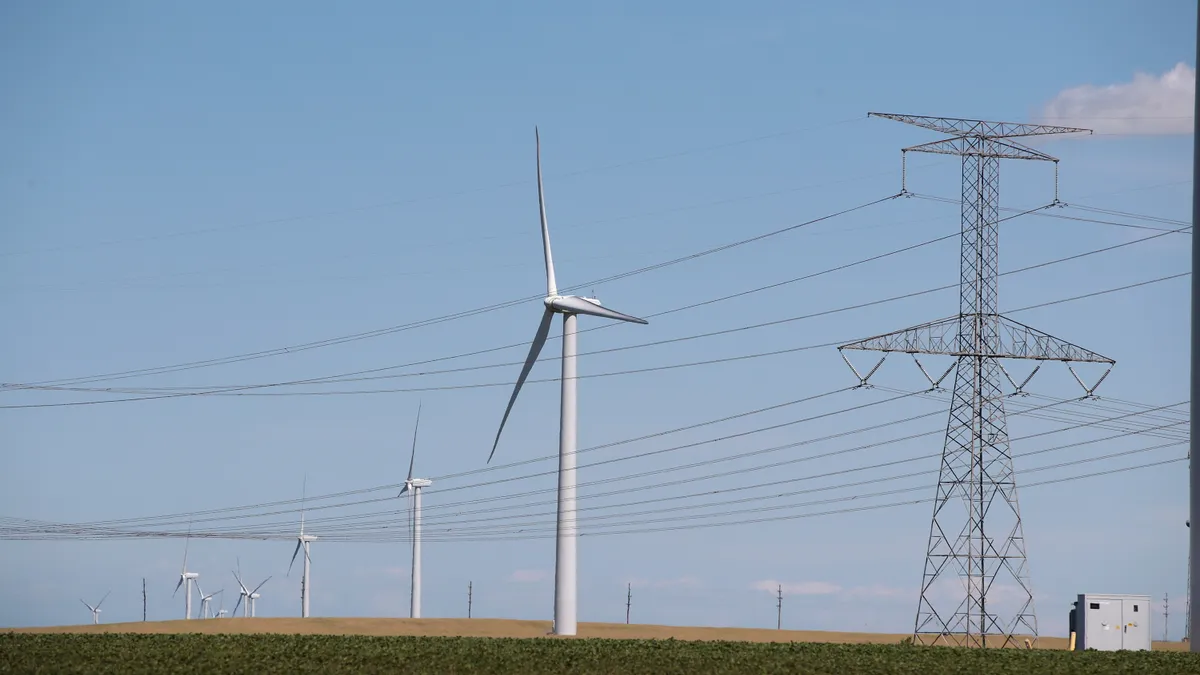The following is a contributed article by Mario Romero, general manager and CEO of Otero County Electric Cooperative.
For many years, I have witnessed attacks on Tri-State Generation and Transmission Association (Tri-State), including recent criticism by Ray Gifford and Matt Larson that might leave readers believing most of Tri-State’s members are disgruntled and want to terminate their contracts with the generation and transmission (G&T) cooperative.
While they quoted a line from Tupac Shakur’s Dear Mama to "describe the mindset of distribution cooperatives across the country," they omitted the fact that co-ops who say they are unhappy with their G&T are a tiny fraction of the 832 distribution cooperatives nationally. Perhaps they should have paid more attention to the first line and overarching theme of Dear Mama, "you are appreciated."
As general manager and CEO of Otero County Electric Cooperative (Otero), my experience, based on regular interactions with hundreds of cooperative leaders across the country over the last 19 years, tells me the overwhelming majority of co-ops depend on, value and greatly appreciate their G&T.
Through their appointed representatives on our power supply cooperative’s board of directors, nearly all Tri-State members supported the move to rate regulation under the Federal Energy Regulatory Commission (FERC). Each co-op had a different reason for supporting FERC oversight. Otero, in Cloudcroft, New Mexico, provides electric service to many low-income and underserved communities. We felt FERC was the only place where we could get a fair shake. As we and other smaller distribution cooperatives work through FERC processes, most of us don’t have the attorneys, public relations firms and lobbyists that the larger, more vocal co-ops employ to further their interests. We rely on Tri-State to represent the silent majority of members who support the G&T's filings at FERC.
This is one of the reasons we and our cooperative peers formed G&T cooperatives in the first place: to share costs and risks that none of us could bear on our own. My belief and hope is that the FERC commissioners and staff understand that when Tri-State acts, it is acting on behalf of its majority of members who find value in our cooperative, support the direction it is headed in, and firmly believe in its mission to provide reliable, affordable and responsible power to all of its members.
There are only a handful of distribution cooperatives that want to terminate their contracts with Tri-State and the rest of the membership. I support allowing a member to terminate its contract, but not at a discounted price that would raise electricity rates for Otero’s consumer-members — or, even worse, bankrupt Tri-State and leave our consumer-members holding the bag. Even those wanting to terminate their contracts have admitted they ought to owe something for backing out of their commitments.
The question before FERC is how to determine the cost of termination. Unlike the Colorado Public Utilities Commission, which has no obligation to consider the interests of cooperative members outside of Colorado, FERC is uniquely positioned to make a fair decision while considering impacts to all interested parties, no matter where they are located or how small they might be.
This decision is crucial. G&T contracts are not like cell phone contracts, as some may want you to believe. All Tri-State members mutually and voluntarily entered into their contracts with the expectation that Tri-State would invest in and maintain the necessary transmission and generation to ensure the lights would come on for decades into the future. Tri-State has held up its end of the deal by taking on debt and building infrastructure, much of which was for those members that now want to leave.
If these members are allowed to walk away without paying their fair share, the people who will be harmed the most are consumers like Otero’s members. Any remaining Tri-State members who have honored their contracts will be forced to pick up the slack and shoulder the exiting members’ expenses to maintain infrastructure and service debt. We will have done nothing wrong; we simply honored our contracts and commitments to each other, but we will pay a huge price if exiting members are allowed to terminate their contract and only pay a fraction of what is needed to make sure the rest of us are unharmed.
As is evident by FERC’s recent order to show cause in docket EL21-75-000, which Tri-State responded to in order to demonstrate more transparency in the contract termination process, Tri-State, like any organization, is not perfect. In the rapid clean energy transition Tri-State is making, there are bound to be challenges. As far as the assertion that Tri-State — or more broadly, the G&T model — is broken and needs to be fixed, I ask, what exactly is the problem that needs to be solved? It isn’t that G&T members are not receiving reliable and affordable power. In Tri-State’s case, we are receiving much greener power at declining wholesale rates.
When Tri-State — or any other G&T, for that matter — needs oversight beyond the boardroom, we all have a voice at FERC. But this is no reason to suggest the G&T cooperative business model is broken. This is the same model that always has provided, and undoubtedly will continue to provide, reliable, affordable and responsible energy to millions of co-op members well into the future. The bigger problem is that a small handful of vocal G&T members across the country want to terminate their contracts, and do so at the lowest cost possible, no matter how that might affect the rest of us.













